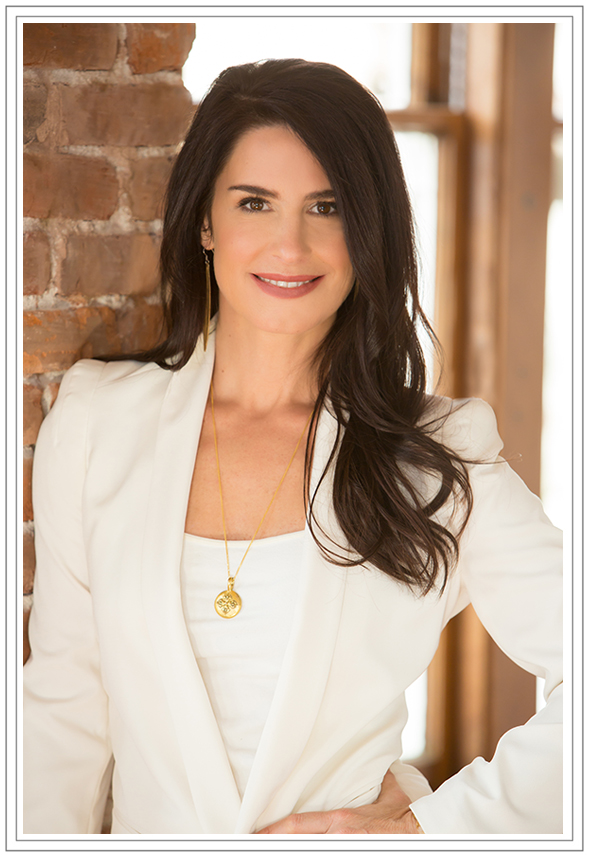The definition of insanity as we know it – and we ALL know it – is “doing the same thing over and over again and expecting a different result”. How many times in the course of a lifetime do we have the same thoughts (memories) that lead us to the same choices (actions) that generate a desire to repeat – or not repeat – the whole cycle over again? Dozens? Hundreds? Thousands? This is what I refer to as the karmic hamster wheel of life and, ultimately, we are all in one in some way or another.
Ever wonder WHY it is that you think the same thoughts over and over again, or that you find yourself in the same relationships having the same conversations? Or maybe you habitually repeat the same addictive patterns and behavior cycles that you know are unhealthy emotionally, physically or mentally (most likely all of the above), and yet you continue to do it anyway. It’s okay – no judgement here. I have my own tasty little amuse-bouche of dysfunctional fallbacks.
This is the big lifestyle challenge that we all face. There is a reason why our society is predominantly commitment phobic and that is because commitments change your life. They require an investment of your time, energy, attention, and funds and that, by definition, requires you to reorder your priorities. When we recognize an area in our life that isn’t working anymore (perhaps it never was) and we feel compelled to create change, the obvious question that arises is “Will this commitment change my life for the better?” The next question is probably something along the lines of “How will it change my life for the better?” The answer is this: much will depend on your ability to see the situation for what it is, your level of self-discipline to initiate change, and whether or not you have the stamina to go the distance.
This is, in large part, what I help people to recognize and overcome in my lifestyle coaching, workshops and online courses. But before you tackle a lifetime of patterning, you have to know what you’re dealing with and it helps to have some background into how it is that we are seemingly hard-wired. I say “seemingly” because the matrix of our being goes much deeper than the idea of a simple, hard-wired unit but this will do for now.

Take, for instance, the example of coffee (or tea, or water, or love, sex, drugs or food). At a certain point in your life, you had your first experience with coffee (or other action-turned-habit) and maybe you really enjoyed it. You loved the rich flavor and the aroma, you liked that the cup felt warm in your hands – it was comforting – and you also noticed that it gave you a nice little kick in the pants. This action then created the memory of flavor, aroma, comfort and boost of energy. Your memories then resurface and you have the desire to repeat that action because the memory of it created happy thoughts, feelings and sensations. So, the cycle begins. This may seem like a relatively harmless pattern at first glance but over time, like anything done in excess, it becomes toxic and eventually takes its toll. What’s important to know is this: what makes each one of us different are not our life experiences but the choices that we make in every moment of every day.
So how do we break the cycle? First, you have to notice that you’re stuck on the merry-go-round to begin with. This can be elicited through the practice of meditation, which expands our awareness to what is known as witnessing, or the observer effect. Even while you’re spinning out there is an aspect of you that is observing the predicament like poorly shot b-roll in a low-budget film. Okay, that’s not a very conscious statement but you get the idea. The next step is engaging in some internal dialogue around whether or not you’re fed up enough to make a shift. At this very important stage, you’re aware that the game needs change and that you are the cashier, yet you still have to decide what you’re willing to actually commit to doing about it. There’s that word again – “commit”. Commitment implies action. When you make a commitment you dedicate yourself to a course of action that you believe will result in the expansion of happiness and well-being. Simply stated, commitment means moving through a door of change through which you do not intend to return.
So ask yourself the question: AM I INSANE?!? Don’t worry when the answer is “yes” because we’re all a little insane. The good news is you can change that anytime you choose to.
Self-reflection + Inspired Action
1. Consider the things that you do over and over again. Now ask yourself how are these patterns serving you?
2. What are some of your dysfunctional behavior patterns or cycles and in what ways are they holding you back?
3. Have you learned the life lesson yet (because there ALWAYS is one) or do you need to go a few more rounds?
You are as good as you believe you are. What do you truly believe and why do you stop there?

An International Bestselling Author, Lifestyle and Leadership Coach and speaker, Tris Thorp is one of today’s leading experts in the field of personal growth and leadership development, specializing in emotional healing, women’s empowerment and shadow work.
Having spent a decade traveling the world, being trained by and sharing the stage with Dr. Deepak Chopra in the field of social emotional learning, consciousness and mindfulness-based practices, Tris has a real gift for integrating the ancient spiritual teachings with modern-day science and mindfulness to help people all over the world let go of their past and create an empowered new future.
During her tenure at the Chopra Center, Tris apprenticed under the Chopra Center’s co-founder Dr. David Simon, co-facilitating the Healing the Heart and Emotional Freedom workshops alongside him. Prior to his passing in 2012, Dr. Simon appointed Tris as the person to carry on his teachings in the field of emotional healing. In addition, Tris was fortunate to be mentored by the late Debbie Ford prior to her passing in 2013, which is where she continued her extensive studies of the unconscious mind and concepts of the persona and shadow. After the loss of her two mentors, Tris went on to become certified through the Ford Institute as a coach specializing in Shadow Work and reconciling mental and emotional issues stemming from past experiences. She continues to share the gifts of emotional healing and facilitating this work in the footsteps of her former mentors.
Tris is the International bestselling author of Healing Your Heart: Rewrite Your Story with Awareness and Intention. A guide book to understanding your emotions, how we create our story and workable tools and techniques to heal from the past, Healing Your Heart stewards you through the process of releasing mental and emotional baggage, forgiving yourself and others, setting and enforcing boundaries and consciously communicating your needs in a loving and effective way so you can be who you’re meant to be, do the things you want to do and have all that you deserve to have in this life.
Tris is also the co-author of bestseller Mental and Emotional Release® with Dr. Matt James. Written in a language both professionals and non-professionals can understand, Mental and Emotional Release® offers real life case studies, an overview of MER and its foundation, step by step scripts to follow, and clinical efficacy studies comparing MER to other therapies.
Clearly in her dharma, Tris’s passion and dedication to gently guide people on their inward journey through personal growth is evident in her work as a Lifestyle and Leadership coach, Trainer of Mental and Emotional Release and workshop facilitator. She teaches various courses on leadership development, personal empowerment, social emotional learning and higher states of consciousness – both in online courses and her certification programs, live workshops, VIP retreats and 1-1 clients.
Tris Thorp is Board Certified by the Association of Integrative Psychology as a Trainer of Mental and Emotional Release ®, Master Practitioner of Neuro Linguistic Programming, Hypnosis, and Mental and Emotional Release ®, a Certified Reiki Master, and an Experienced Registered Yoga Teacher with Yoga Alliance.
Tris is devoted to inspiring and empowering others to cultivate and maintain mindfulness-based lifestyle practices that lead to greater clarity, purpose and fulfillment. Through one-on-one coaching, online programs and live events, Tris specializes in helping people to fully release negative emotions, limiting beliefs and unconscious patterns, enabling them to make quantum leaps into the life they are truly meant to be living.

I have enjoyed Trista as a supervisor, teacher and mostly as a friend. Her insights and perceptions are ones you can don and have a more enlightened view of yourself, your actions and your environment. This essay is especially useful at this time. Often we say – Been there, done that- and do it again. Trista shares an approach that can help change that continuity and access a more positive route. I look forward to more of her writings.